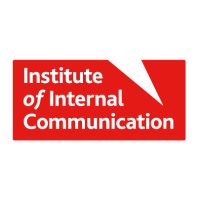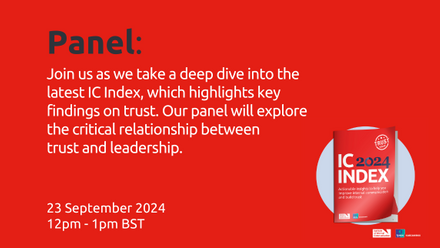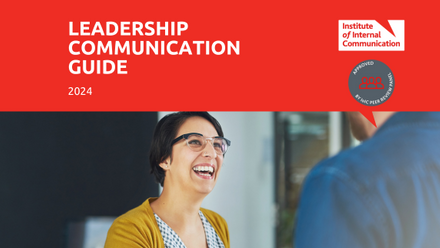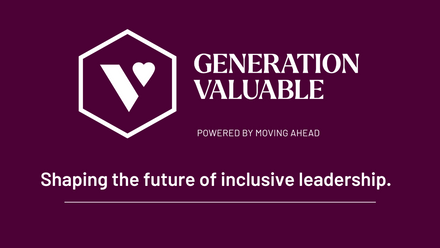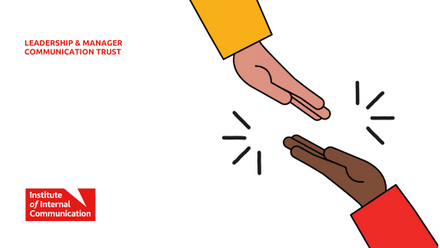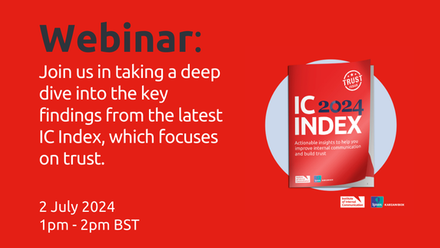Trust: let’s take it to the top
In the face of a global pandemic, rising economic instability and, equally as disturbing, a global information war, Edelman’s latest Trust Barometer reveals one uncomfortable truth in particular – namely, that people simply no longer know where to turn for reliable information.
On many levels, this is unsurprising. The ambiguous nature of a life-threatening novel virus has given rise to numerous false starts and U-turns. Each row-back has been sensationalised by 24/7/365 news coverage.
Time and again, we’ve been forced to adapt our behaviours and routines in response to new scientific data as it emerges.
Throughout the crisis, information and communication flow have been key. Unfortunately, a lack of clarity in public health messaging has created widespread confusion and, ultimately, distrust.
Navigating the wild net
When information is lacking, our natural human response is to tell ourselves stories in a bid to fill the vacuum. These alternative narratives often lead to misinformation and, worse, conspiracy theories. As we’ve seen, these quickly get seized upon and propagated across social media. The wilder the allegation, the better – in an age where web clicks are everything, anything attention-grabbing is seemingly worth sharing.
It’s now harder than ever to discern fact from fiction. That some global leaders have proactively fanned these flames makes the disinformation emergency even more critical.
Edelman calls this crisis an infodemic and talks of “information bankruptcy”. Trust in government and journalism is declining.
57%
Survey respondents believe they’re being deliberately misled by Government officials, and 59% believe they’re being lied to by journalists.
When it comes to whom to believe, we’re living in perilous times.
And yet, in parallel, this year’s Trust Barometer reveals seismic opportunity for internal communication professionals. Where trust has disintegrated elsewhere, business has emerged as the most trusted institution, ranking higher for ethics and competence than any other organisation measured.
Last autumn, we made the business case for world-class internal communication. Our report (available here), made the point that in an age of ambiguity, authentic leadership communication is more critical than ever.
The 2021 Trust Barometer mirrors this.
86%
Survey respondents who want CEOs to lead on societal issues, and 68% say CEOs should step in when Governments fail to step up.
What is trust?
While multiple definitions of trust are available online, there’s no one clear meaning. This makes sense because trust is a highly subjective state of mind. It’s as much a feeling as anything else.
It’s the sense that someone or something is good and honest; it’s a willingness to believe in the possibility of the future. Trust is delicate – it’s grounded in generosity and goodwill. It builds over time, when we consistently show up with the right words and behaviours, and yet it can be destroyed in a heartbeat, through an ill-thought-out action or comment.
Above all, trust is an exchange that implies that the person or entities will do “the right thing” by one another. It’s laden with hope that its unspoken code will not be dishonoured.
Ultimately, trust is the bedrock of all positive human relationship.
Trust as an opportunity
While this year’s Trust Barometer highlights an erosion of trust in government and journalism, it also presents a clear opportunity for organisations to demonstrate what “better” looks like.
And this starts with honest, authentic CEO-led communication – both externally, to build brand loyalty, and internally, to build engagement.
Every day, we each choose whom we trust enough to buy from or give our time, attention and energy to.
The Trust Barometer reveals that 84% of us are worried about job security. This anxiety will undoubtedly impact workforce engagement and performance.
For us to give our best at work, we need to feel psychologically safe.
The Barometer also reveals that internal communication is now considered the most credible source of information. In the absence of other trusted sources, what and how we communicate in the workplace enables us to feel connected to community, even when we’re physically distanced. This sense of community and togetherness is invaluable; it feeds a sense of security amidst so much uncertainty. Feeling safe is foundational to wellbeing, which as we know, is a key driver in workplace engagement.
Furthermore, effective internal communication is now perceived as a key differentiator for jobseekers evaluating career opportunities.
Strong, authentic and empathic internal communication is now a game-changer. The opportunity is to help leaders and organisations with their communication styles to build more connected and engaged workforces.
Engagement underpins organisational resilience and agility – both of which are key to navigating the volatilities of the decade ahead.
Cat Barnard is partner and co-founder of Working the Future, which helps UK business leaders understand, and adapt to, different work landscapes, by analysing and distilling the latest trends and insights.
Since 2000, global communications firm Edelman has tracked how trust and credibility are perceived within society. Its annual report has become a go-to tool for those involved in the intricate work of optimising workplace performance and engagement.
